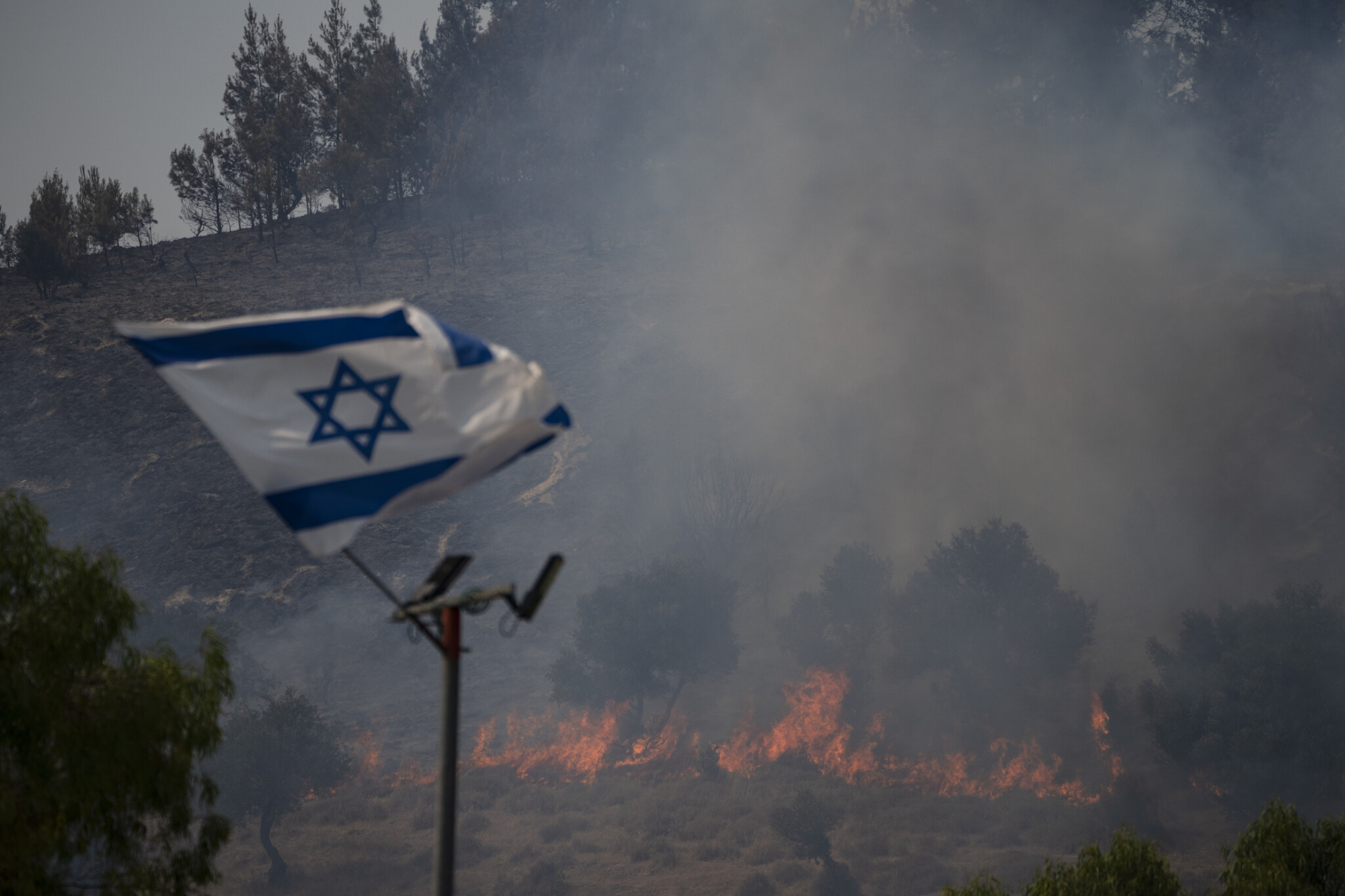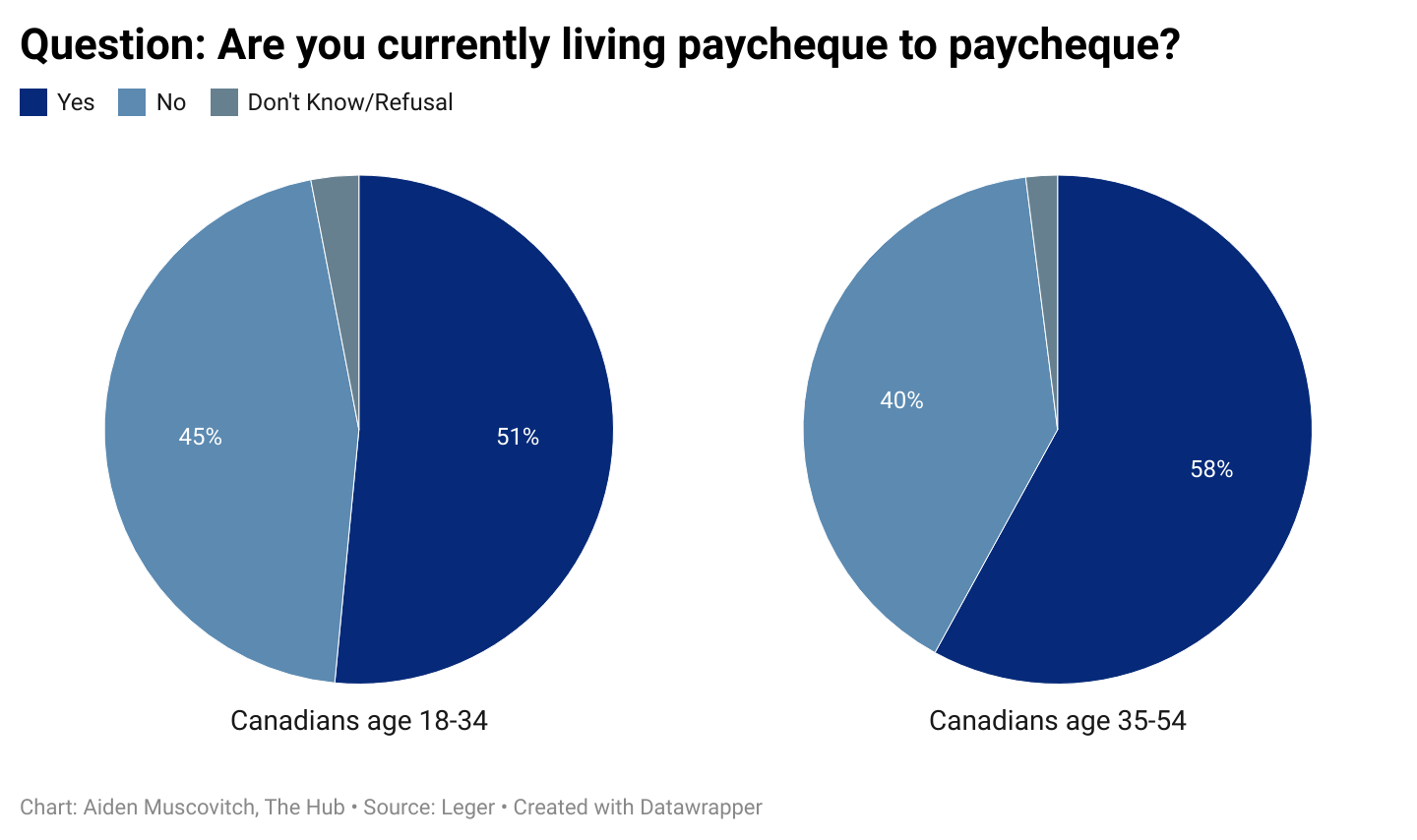This is The Week in Polling, your Saturday dose of interesting numbers from top pollsters in Canada and around the world, curated by The Hub. Here’s what we’re looking at this week.
A majority of Canadians ages 18-54 live paycheque to paycheque
Canadians are facing a cost-of-living crisis. According to this recent Leger poll, more than 50 percent of Canadians between the ages of 18 and 54 say they are living paycheque to paycheque to stay afloat.
About 37 percent of Canadian households report borrowing money from banks and lenders to pay for daily expenses like food. Additionally, the majority of Canadian households, 56 percent, report having trouble meeting and fulfilling their financial commitments due to monetary constraints.










